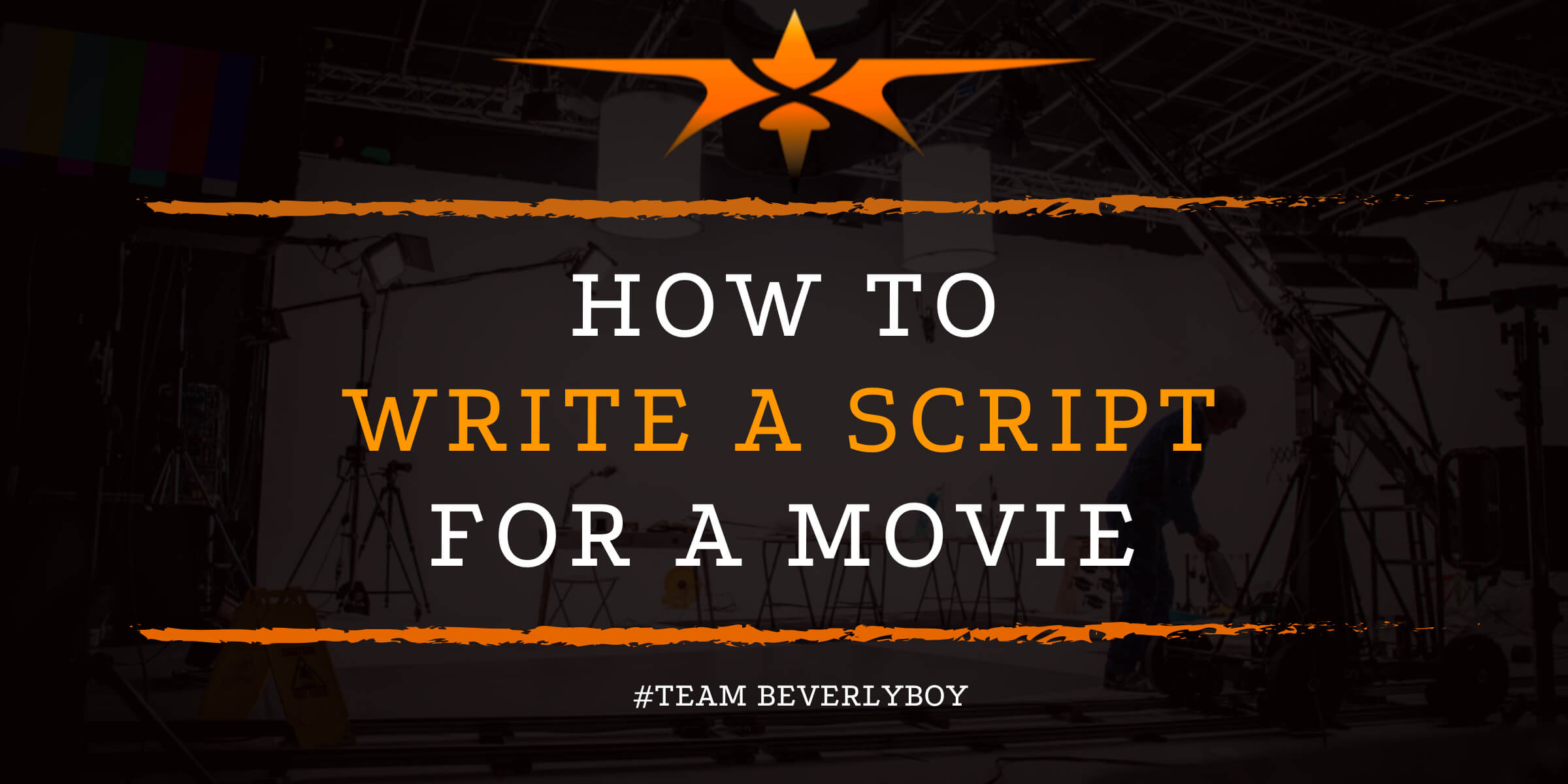
How to Write a Script for a Movie
Learning how to write a script for a movie is a big task that almost any aspiring filmmaker will approach at some point in their career. The process is so important, and yet so challenging. That many filmmakers will start, and stop, several times over before they actually achieve a full and complete written screenplay. While the average feature movie screenplay is between 70 and 180 pages in total length, for an estimate of about 1 page per finished minute, you’ll find that most scripts are about 110 pages.

As we take you through the process of figuring out how to write a script for a movie, we’ll focus on the important professional elements of a script and formatting.
Every screenplay is different, and including things like flashbacks, montages and other elements will further add to the complexities that make your script both amazing, and professionally produced.
As you learn how to write a script for a movie, consider also the importance of these elements and learning how they work too!
How to Format a Movie Script
Like most professional screenplays, a movie script should be formatted in 12-point Courier font with a 1.5 inch margin to the left and 1 inch margins on the other three sides of your page. Additionally, your script should include about 55 lines per page.
Dialogue will begin at 2.5 inches from the left of the page and the following additional formatting requirements are also important:
- All uppercase letters for character names.
- Character name positioning begins at 3.7 inches from the left of the page.
- Page numbers for pages 2 on are included in the top right of the page and have a period after the number.
Most screenwriting or script software will include the appropriate formatting for you so that you don’t have to worry so much about formatting your pages individually.
Elements of a Movie Script
Your movie script is made up of a variety of important elements that come together to form the basis of your screenplay. You’ll have a logline, scene headings, subheadings and a lot of other information.
How you format and include the information will make a difference in the professional appearance of your script.
The following elements are important for your film script:
- Scene headings
- Subheadings
- Transitions
- Characters
- Action Lines
- Dialogue
You’ll use parentheticals to direct actors in cases where the narrative and dialogue do not provide the details that are vital to the production. Just remember that this is not your chance to play director or to include details that are unnecessary. You don’t want to muddy up your script.
Planning Your Script
Knowing how to write a script for a movie has a lot to do with planning and making sure that you’ve got your story structure and plotting under control. Make sure that you’ve taking time to outline the story, and that there is a logical flow from scene to scene.
Mapping your story structure, and your plot before you begin writing your script can help you to achieve the most appropriate outcome. In fact, a script outline will help you keep your story focused and on a forwarded moving path that has the appropriate pace and tone.
It’s going to take you some time to figure out how to write a script for a movie that you will actually feel is worthy of sharing professionally. As you focus and hone your skills, pay close attention to each word and each description of your scene, setting, dialogue and narrative.
Even professionals have to practice, so the best thing you can do is just start writing!


